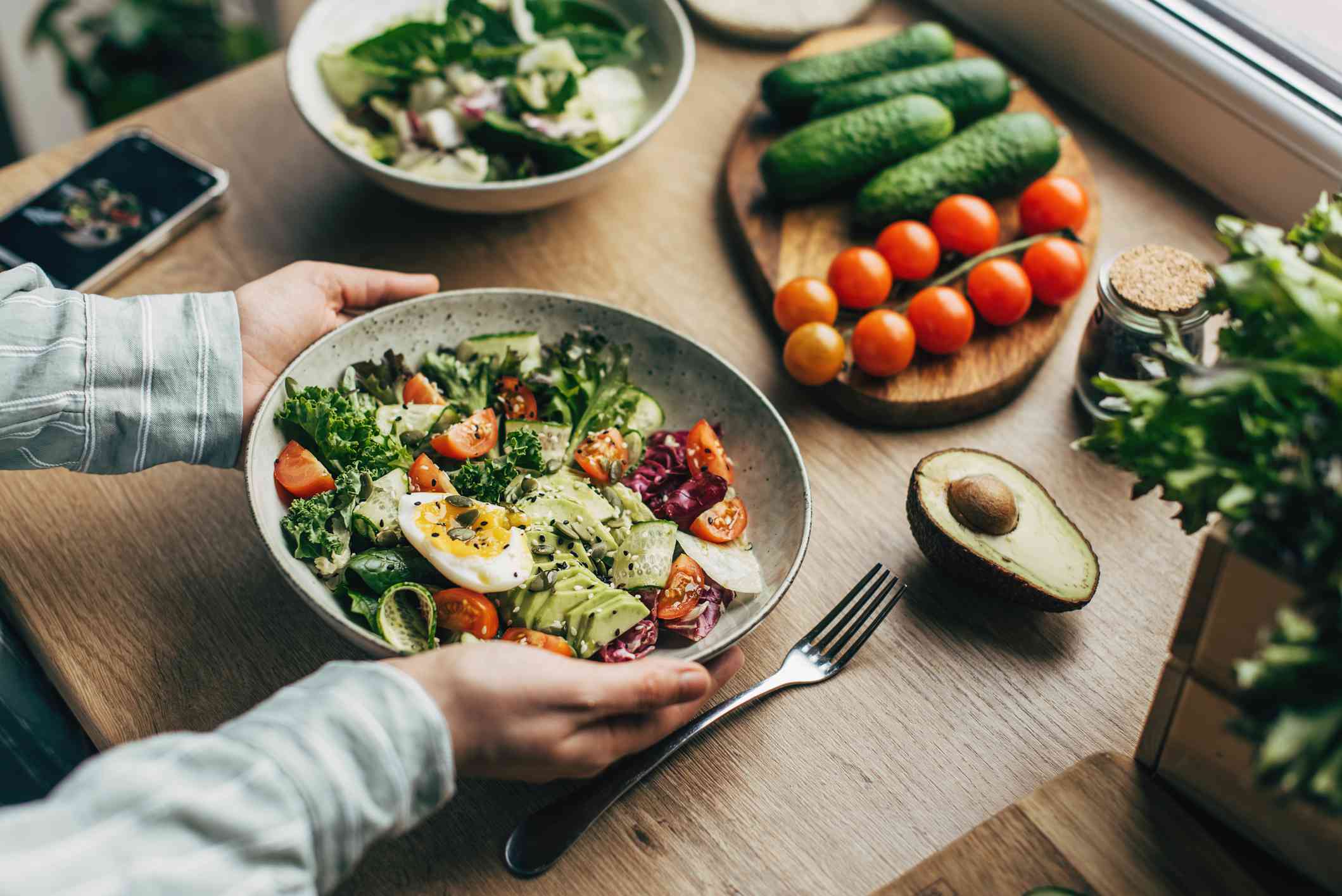Losing weight involves more than just cutting calories; it’s about making smart, sustainable food choices that support overall health. Selecting nutrient-dense foods can help create a calorie deficit while keeping you satisfied and energized. Here’s a guide to foods that can aid in weight loss and promote well-being.
High-Fiber Foods
Fiber is essential for weight loss as it helps keep you full longer, reducing overall calorie intake.
- Vegetables: Leafy greens like spinach, kale, and broccoli are low in calories and high in fiber. They add volume to meals, helping you feel satisfied without extra calories.
- Fruits: Berries, apples, and pears are rich in fiber and antioxidants. They make excellent snacks or additions to breakfast.
- Whole Grains: Opt for whole grains like quinoa, brown rice, and oats. These provide fiber and essential nutrients, keeping you full and energized.
Lean Proteins
Proteins are crucial for muscle maintenance and satiety. Including lean sources can aid in weight loss.
- Chicken and Turkey: Skinless poultry is low in fat and high in protein, making it ideal for weight loss.
- Fish: Salmon, tuna, and other fatty fish are rich in protein and omega-3 fatty acids, which support heart health.
- Plant Proteins: Beans, lentils, and chickpeas are excellent plant-based protein sources that also offer fiber.
- Eggs: Packed with protein and essential nutrients, eggs can keep you satisfied and reduce cravings.
Healthy Fats
Incorporating healthy fats can support weight loss by providing essential fatty acids and promoting satiety.
- Avocados: Rich in monounsaturated fats, avocados can enhance meals without adding too many calories.
- Nuts and Seeds: Almonds, walnuts, chia seeds, and flaxseeds offer healthy fats and fiber. They make great snacks or toppings for yogurt and salads.
- Olive Oil: Use extra virgin olive oil for cooking and dressings. It adds flavor without unhealthy fats.
Low-Calorie Beverages
Choosing the right beverages can significantly impact weight loss efforts.
- Water: Staying hydrated aids metabolism and can reduce hunger pangs. Add lemon or cucumber slices for flavor.
- Herbal Teas: These are calorie-free and can be a soothing, hydrating option throughout the day.
- Black Coffee: Drinking coffee in moderation can boost metabolism and increase fat burning.
Mindful Eating Habits
In addition to choosing the right foods, adopting mindful eating habits can support weight loss.
- Portion Control: Pay attention to portion sizes to avoid overeating, even with healthy foods.
- Regular Meals: Eating regular meals and snacks can stabilize blood sugar levels and prevent excessive hunger.
- Mindful Eating: Focus on eating slowly and savoring each bite. This practice can reduce overeating and promote satisfaction.
Foods to Limit
While focusing on healthy foods, it’s important to limit those that can hinder weight loss.
- Sugary Snacks: Cookies, candies, and pastries offer empty calories and contribute to weight gain.
- Fried Foods: High in unhealthy fats, fried foods can increase calorie intake significantly.
- Refined Carbohydrates: White bread, pasta, and pastries lack fiber and can spike blood sugar levels.
- Sugary Beverages: Sodas, sweetened teas, and energy drinks add calories without nutritional benefits.
Creating a Balanced Meal Plan
Incorporating these foods into a balanced meal plan can make weight loss more manageable and enjoyable.
- Breakfast: Start with oatmeal topped with berries and a handful of nuts for a fiber-rich, satisfying meal.
- Lunch: A salad with leafy greens, grilled chicken, avocado, and a sprinkle of seeds offers protein and healthy fats.
- Dinner: Enjoy grilled salmon with steamed broccoli and quinoa for a nutrient-dense dinner.
- Snacks: Choose apple slices with almond butter or a small portion of Greek yogurt with chia seeds.
Consulting Healthcare Professionals
Before making significant dietary changes, consulting with a healthcare provider or nutritionist can provide personalized guidance tailored to individual needs and goals.
Conclusion
Losing weight is a journey that involves making informed food choices and adopting healthy eating habits. By focusing on nutrient-dense foods like vegetables, lean proteins, and healthy fats, anyone can create a satisfying and effective weight loss plan.
Embrace this journey with confidence, knowing that these nourishing choices support both weight loss and overall well-being. Enjoy the benefits of a balanced diet and the positive impact it has on health and vitality.

